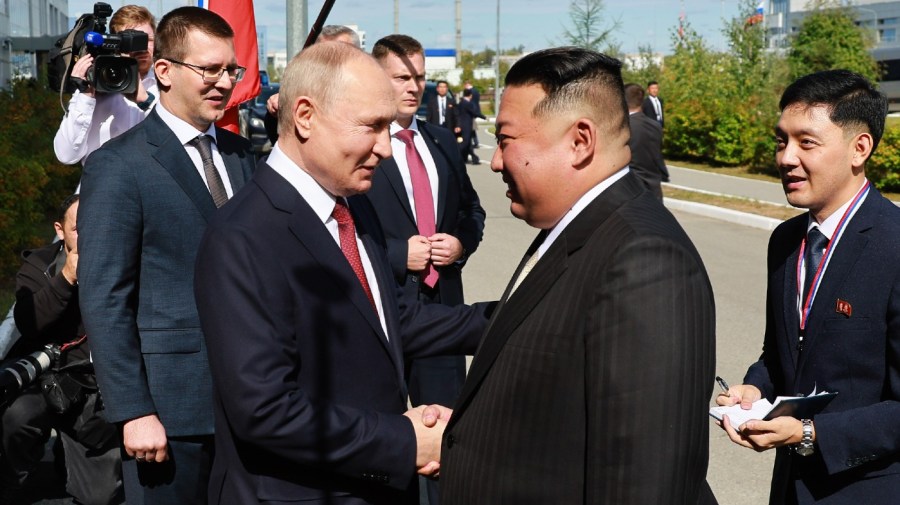Quick Bytes
- Russia-North Korea military alliance may impact Biden’s position in 2024.
- North Korea suspected of planning a military action to coincide with the U.S. election.
- Putin’s expected visit to North Korea could solidify military ties and escalate tensions.
- North Korea’s military advancements could be bolstered by Russian technology.
Escalating Tensions: Russia-North Korea Alliance Poses Challenges for Biden
An emerging military alliance between Russia and North Korea is raising concerns for President Biden as the 2024 election approaches.
U.S. intelligence and experts warn that North Korea, which has been supplying Russia with munitions for the war in Ukraine, may be gearing up for a significant military provocation. This potential threat looms as Russian President Vladimir Putin plans a visit to meet with North Korean leader Kim Jong Un, potentially deepening their military cooperation. Such a partnership could not only prolong the conflict in Ukraine but also advance Pyongyang’s nuclear and space ambitions, increasing global security risks.
The alliance has seen North Korea allegedly violating U.N. sanctions by sending military supplies to Russia, which in turn may provide North Korea with critical military technology. This exchange has already had a tangible impact on the ground in Ukraine, with North Korean munitions causing damage and civilian casualties. Experts suggest that the strengthened ties between the two nations could embolden North Korea to escalate its military activities, including the development of a nuclear-armed submarine and satellite capabilities.
Amid these developments, North Korea’s recent missile tests and the potential for a new nuclear test pose additional challenges for the Biden administration. With historical patterns indicating increased North Korean military activity during U.S. election years, there is heightened anticipation of further provocations as November nears. The implications of the Russia-North Korea alliance extend beyond the battlefield in Ukraine, affecting security dynamics in the Indo-Pacific region and complicating U.S. foreign policy efforts.



